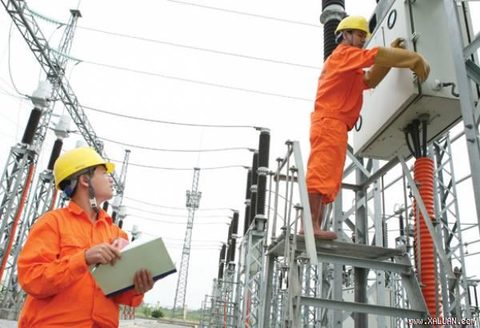Government SOE initiative international ovation
 |
| illustration photo, source: zing |
In a resolution on solutions for macro-economic monitoring released on March 10, the government ordered ministries and localities’ people’s committees to “strengthen the inspection and supervision of the operational effectiveness of all state-owned groups and corporations.”
The groups and corporations will also have to periodically report their operational results to the government.
The government’s tough move, aimed to make groups and corporations more transparent, has been highly commended by foreign experts.
Hong Sun, general secretary of the Korea Chamber of Business in Vietnam, told VIR that the move “will help strengthen foreign investors’ confidence in the government’s efforts to make state-owned enterprises (SOEs) operate transparently.”
“SOEs’ money is by nature that of the public. Thus it is quite necessary to have close control over their operations,” he said.
“International financial organisations and foreign firms are greatly interested in Vietnamese SOEs’ operations, because they want SOEs to quicken their equitisation,” he said. “However, over the past many years, such operations have never been made transparent.”
Echoing this view, Aaron Batten, country economist from the Asian Development Bank’s Vietnam Resident Mission, also told VIR that the Vietnamese government should have closer control over SOEs. It is also necessary to “reduce, and eventually remove state ownership in many commercial sectors of the economy, to allow the private sector to grow and compete on a level playing field.”
According to Batten, Vietnam currently adopts a decentralised system of ownership over SOEs. The system is common in countries that have favoured economic intervention by the state and with a large number of SOEs, as it allowed the line ministry to use sector expertise to implement an active industrial policy.
“However, decentralisation also causes fragmented ownership, weakening the power of the state to push ahead with SOE reforms. Lacking clear accountability lines and being difficult to coordinate can contribute to inefficiencies within SOEs,” Batten said.
Meanwhile, Warren Mundy, managing director of Australia’s BlueStone Consulting Pty., Ltd. and former commissioner of Australia’s Productivity Commission, told VIR that in Vietnam, SOEs dominate many important markets, such as electricity, gas, oil, minerals, telecommunication services, domestic air transportation, credit financing, and railways, which is unfair to private firms.
“Transparency, openness, and a strong commitment to robustly reforming SOEs and institution are central to ensuring a level playing field for all enterprises, and that Vietnam can lure more foreign direct investment,” stressed Mundy, who used to work with Vietnam’s Central Institute for Economic Management on economic reforms.
The International Monetary Fund suggested that Vietnam should accelerate the reform of the SOE sector. Key elements include: faster and more comprehensive equitisation, while ensuring due process; transparency of equitisation procedures and their use; enforcement of disclosure and reporting requirements; governance reforms to address conflicts of interests between regulations and SOE management, along with strengthened accountability; continued divestment from non-core areas; restructuring and eventual exit of unprofitable SOEs; and the creation of a level playing field with the private sector by curtailing SOEs’ preferential access to credit and other resources.
What the stars mean:
★ Poor ★ ★ Promising ★★★ Good ★★★★ Very good ★★★★★ Exceptional
Latest News
More News
- Pegasus Tech Ventures steps up Vietnam focus (February 05, 2026 | 17:25)
- The generics industry: unlocking new growth drivers (February 04, 2026 | 17:39)
- Vietnam ready to increase purchases of US goods (February 04, 2026 | 15:55)
- Steel industry faces challenges in 2026 (February 03, 2026 | 17:20)
- State corporations poised to drive 2026 growth (February 03, 2026 | 13:58)
- Why high-tech talent will define Vietnam’s growth (February 02, 2026 | 10:47)
- FMCG resilience amid varying storms (February 02, 2026 | 10:00)
- Customs reforms strengthen business confidence, support trade growth (February 01, 2026 | 08:20)
- Vietnam and US to launch sixth trade negotiation round (January 30, 2026 | 15:19)
- Digital publishing emerges as key growth driver in Vietnam (January 30, 2026 | 10:59)















 Mobile Version
Mobile Version